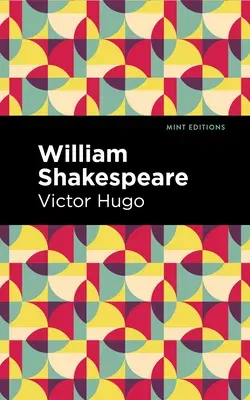William Shakespeare (1864) is an experimental biography by Victor
Hugo. Written while the poet was living in exile on the island of
Guernsey, William Shakespeare was doomed to fail at its conception.
Condemned by critics who expected Hugo to focus on the works of the
Elizabethan playwright, William Shakespeare is in reality a sweeping
biography of literature itself, a touching tribute to the spirit of
creativity which defines humanity's life on earth and beyond. "There are
men, oceans in reality. These waves; this ebb and flow; this terrible
go-and-come; this noise of every gust; these lights and shadows; these
vegetations belonging to the gulf [...] -all this can exist in one
spirit; and then this spirit is called genius, and you have Aeschylus,
you have Isaiah, you have Juvenal, you have Dante, you have Michael
Angelo, you have Shakespeare; and looking at these minds is the same
thing as to look at the ocean." For a writer of Hugo's stature, whose
poems, plays, novels, and essays earned him a reputation on an
international scale as one of the nineteenth century's premier artists,
there is always the chance that the myth will outlast the man, and that
the work will fall victim to idolization. In William Shakespeare, he
leans into this tendency to immortalize the artist while forgetting the
art. Begun as a simple introduction to his son's translation of
Shakespeare's works into French, the project ballooned into something
much greater, allowing Hugo to meditate on the nature of creativity and
to situate the contribution of one writer within the history of humanity
itself. With a beautifully designed cover and professionally typeset
manuscript, this edition of Victor Hugo's William Shakespeare is a
classic work of French literature reimagined for modern readers.


